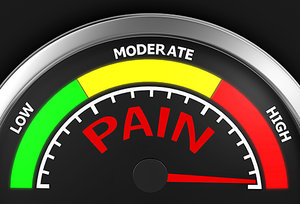The Psychosocial Factors That Can Lead to Low Back Pain
By Spine IQ Staff
If you have low back pain, you are not alone. Many people suffer from back pain at some point in their lives and low back pain is now the leading cause of physical disability worldwide, according to studies.
While low back pain is common, luckily, the vast majority of cases are not life-threatening. However, it is important that you understand what causes low back pain and when you should be concerned.
Causes of Low Back Pain
While there are many potential causes, including biomechanical and anatomical factors, recent research has shown that psychosocial factors related to fear, stress and negative emotions often play a role in the development and persistence of low back pain.
- Fear Avoidance Beliefs refer to the idea that movement or activity will worsen your pain and lead to injury. This can cause you to become more sedentary, which leads to deconditioning and further worsening of your symptoms.
- Catastrophizing is when you catastrophize or magnify the potential consequences of your pain. For example, you may believe that your pain means you have a life- threatening problem when in reality this is not the case. Catastrophizing can lead to heightened anxiety and avoidance of activity.
- Depression is associated with persistent, severe lower back pain and disability. This condition can lead to changes in sleep, appetite, and energy level ‘as well as increase your perceived level of pain. Depression can make it difficult to stick with a treatment plan to manage back pain.
- Stress refers to the body's response to any demand placed upon it, from in the workplace to relationships to financial issues. When you perceive a threat, real or imagined, your body responds by releasing stress hormones like cortisol. These hormones prepare your body for fight-or-flight by increasing heart rate, blood pressure, and respiration; as well as suppressing nonessential functions like digestion. While this stress response is important for survival, chronic stress can lead to problems like headaches, high blood pressure, heart disease, and depression - all of which are associated with low back pain. In fact, one study found that the severity of a nurse's back pain is directly linked to how stressed they are.
Other Factors That May Be Associated With Low Back Pain
 In addition to psychosocial factors, several other factors are sometimes associated with low back pain:
In addition to psychosocial factors, several other factors are sometimes associated with low back pain:
- Age: People who are between the ages of 30 and 50 are most likely to have problematic low back pain.
- Smoking: It is unknown if smoking causes low back pain or if people who smoke are more likely to have other characteristics or habits that can also cause low back pain .
- Sedentary lifestyle: People who are less active may be more likely to have low back pain.
Key Points to Remember
There are many potential causes of low back pain, including biomechanical and anatomic abnormalities, as well as psychosocial factors. Psychosocial factors refer to the psychological and social aspects of your life that can influence your experience of pain. Some examples of psychosocial factors that have been linked to low back pain include fear avoidance beliefs, catastrophizing, depression and anxiety, and stress. Understanding these psychosocial factors can help you better manage your low back pain.
If you are struggling with low back pain, consider seeing a clinician who specializes in care for low back pain, such as a doctor of chiropractic, who can conduct a thorough history and examination, provide assurance that you do not have a life-threatening condition, and talk with you about what steps you can take to decrease your pain.
Spine IQ is a nonprofit organization focused on sharing patient-centered resources to help those experiencing low back pain make informed choices for their care, beginning with the safest, most effective approach possible. To learn more about back health and back pain, visit SpineIQ.org.

